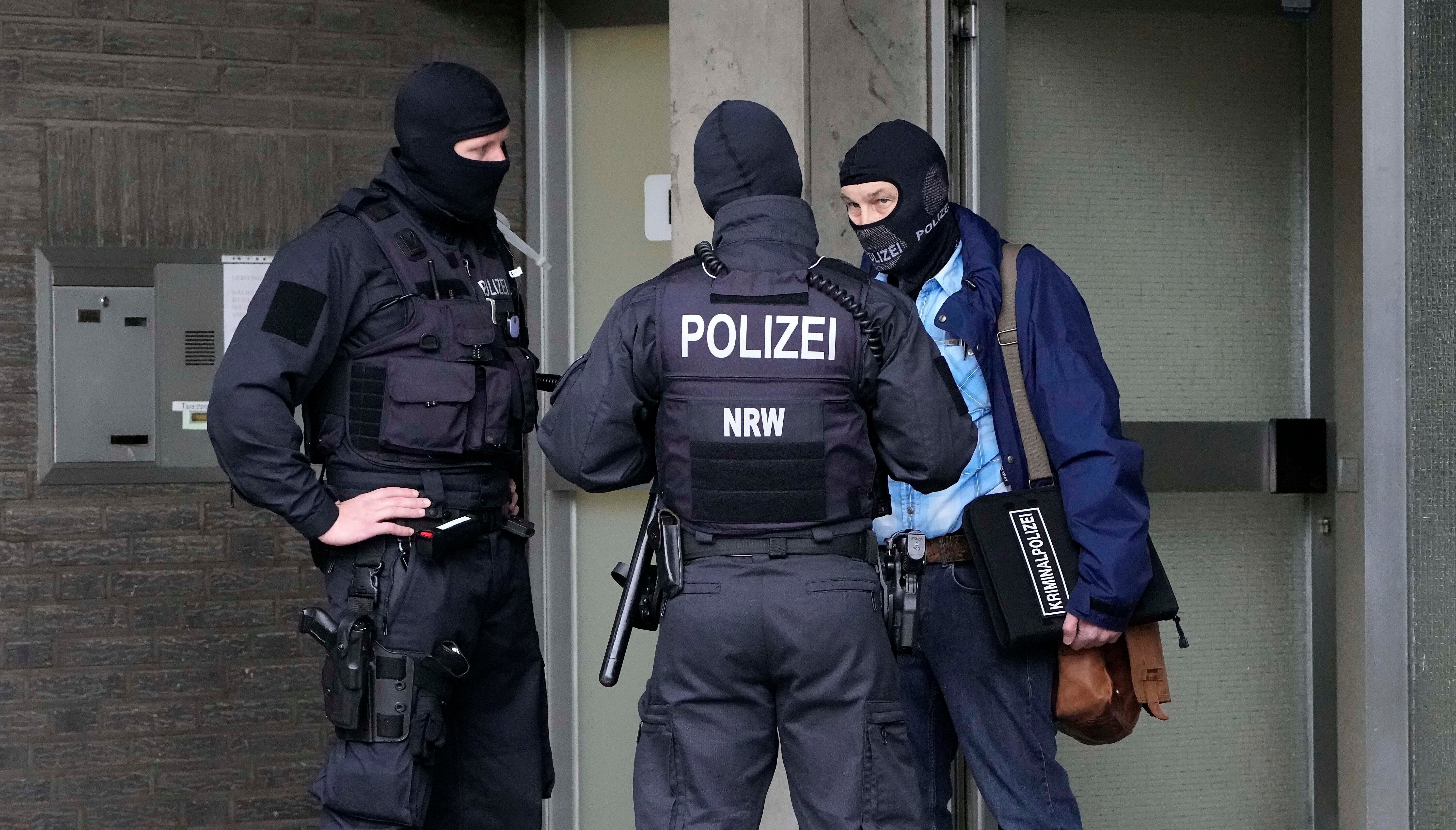German police raid ring suspected of laundering $162 million
German police have carried out large-scale raids in 25 cities in connection with a suspected money-laundering network alleged to have funneled more than $162 million in ill-gotten gains abroad

Your support helps us to tell the story
From reproductive rights to climate change to Big Tech, The Independent is on the ground when the story is developing. Whether it's investigating the financials of Elon Musk's pro-Trump PAC or producing our latest documentary, 'The A Word', which shines a light on the American women fighting for reproductive rights, we know how important it is to parse out the facts from the messaging.
At such a critical moment in US history, we need reporters on the ground. Your donation allows us to keep sending journalists to speak to both sides of the story.
The Independent is trusted by Americans across the entire political spectrum. And unlike many other quality news outlets, we choose not to lock Americans out of our reporting and analysis with paywalls. We believe quality journalism should be available to everyone, paid for by those who can afford it.
Your support makes all the difference.Police carried out large-scale raids in 25 German cities Wednesday, after a chance discovery last year put investigators on the trail of a money-laundering network alleged to have funneled millions in ill-gotten gains abroad.
Officials said the raids, which began in the early hours, involved about 1,400 officers and took place in the states of North Rhine-Westphalia, Lower Saxony and Bremen
They targeted 67 suspects, including 44 Syrians 10 Germans, five Jordanians and four Lebanese.
Eleven people were arrested, including a 39-year-old Syrian man who is accused of membership in Syria’s Nusra Front extremist group, police said. Six others are considered by authorities to be part of the Islamist spectrum, including two who are deemed potential threats.
The raids were part of an investigation into a so-called hawala network widely used in Muslim countries, in which individuals rather than banks act as brokers for money transfers.
Duesseldorf police said the money laundered since 2016 came from a broad range of sources, including criminal activity such as armed robbery, organized fraud, drug trafficking and extortion.
“According to initial estimates the volume of transactions in the period under investigation was about 140 million euros ($162 million),” police said in a statement.
German public broadcaster WDR reported that at least some of the laundered money was sent to Turkey and Syria, where it may have been used to fund militant groups.
Police said the suspects are also accused of illegally obtaining benefits and tax evasion. Officers seized valuables such as luxury cars, cash, gold, jewels and high-end watches worth more than 3 million euros (around $3.5 million), including a 100,000 sound system.
“It was a really big haul," said Herbert Reul, the top security official in North Rhine-Westphalia state.
The network first came to light when police attending a traffic crash in May 2020 noticed some passengers behaving suspiciously, German news agency dpa report. A search of the vehicle revealed gym bags stuff with around 300,000 euros (around $350,000) in cash.